Sleep Apnea Treatment Corpus Christi
The End of Restless Nights
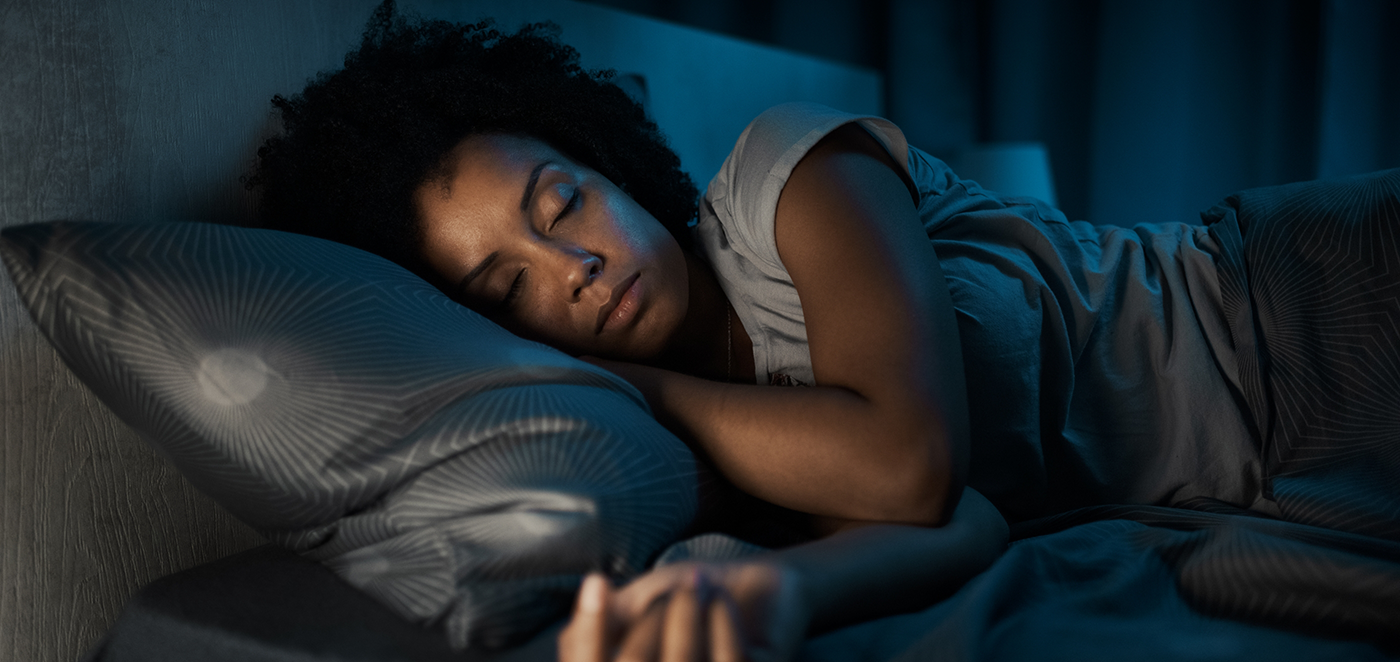
Sleep is one of the primary pillars of good health. Unfortunately, millions of people suffer from a dangerous sleep disorder known as sleep apnea. If you have this condition, you might be wondering how you can put an end to restless nights and start getting the rejuvenating shuteye that your body needs. Our Corpus Christi dental team is here to help. Continue reading below to discover how the innovative Vivos system is often able to provide effective sleep apnea treatment, and then contact us to request a consultation.
Why Choose Sarah Pitarra, DDS for Sleep Apnea Treatment?
- Address the Root Cause of Sleep Apnea
- Avoid the Hassles of a CPAP Machine
- Effective & Non-Invasive Treatment
What is Sleep Apnea?
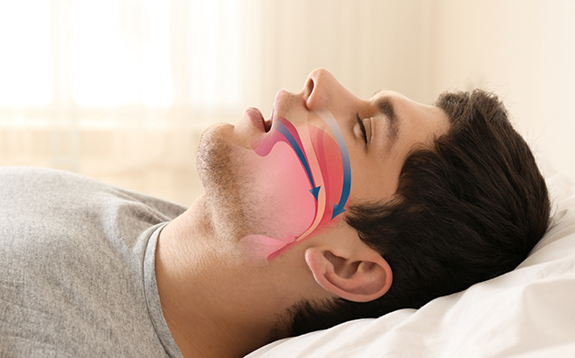
There are three types of sleep apnea: obstructive sleep apnea (OSA), central sleep apnea (CSA), and combined sleep apnea, which is a combination of OSA and CSA. Both OSA and CSA are characterized by repeated pauses in breathing during sleep. These episodes, known as apneas, disrupt the sleep cycle and can reduce blood oxygen levels. As a result, victims of sleep apnea are left feeling exhausted day after day.
OSA is the most common type of sleep apnea. It occurs when tissues in the upper airway over-relax during sleep, causing them to block the free flow of air. Its symptoms include snoring, feelings of tiredness, morning headaches and sore throats, forgetfulness, slowed reaction times, and more.
CSA can cause similar symptoms, though it is not typically associated with snoring. It occurs when the brain fails to send proper breathing signals during sleep.
The Dangers of Sleep Apnea

Initially, sleep apnea may seem like nothing more than an annoyance. The reality is, though, that it can have significant consequences for your health and daily quality of life. For example, there is a strong correlation between untreated sleep apnea and a range of serious health conditions, including heart attack, stroke, type 2 diabetes, high blood pressure, and dementia.
Sleep apnea can also compromise your ability to react quickly in dangerous situations, putting you at a heightened risk of being involved in a car accident.
Additionally, this problem may affect your mood, which can have negative consequences for your relationships and overall emotional health. Some people with sleep apnea even exhibit serious signs of depression and anxiety disorders.
Take Our Sleep Quiz

If you’re experiencing one or more symptoms of sleep apnea, including but not limited to the following, we encourage you to take our sleep quiz:
- Chronic, loud snoring
- Fatigue
- Gasping or choking in your sleep
- Dry mouth or a sore throat in the morning
- Morning headaches
Our team at Sarah Pitarra, DDS may be just the people you need to speak with to find the answers you’ve been looking for!
Sleep Apnea Treatment Options
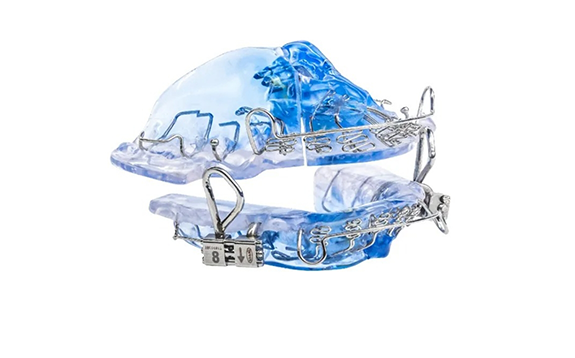
A CPAP machine is the most commonly prescribed way to address OSA. However, many patients find their machine to be uncomfortable, noisy, and inconvenient; they may struggle to comply with their treatment.
In our practice, we offer an effective alternative treatment: Vivos. This innovative system uses custom oral appliances to gently widen the palate and/or train the lower jaw to rest in a slightly forward position. These subtle changes can improve airway health and lead to long-lasting improvements in nighttime breathing. Vivos is discreet, non-invasive, and surprisingly comfortable. For some patients, it even completely eliminates the need for other forms of OSA treatment.
Learn More About Sleep Apnea Treatment
Understanding the Cost of Sleep Apnea Treatment
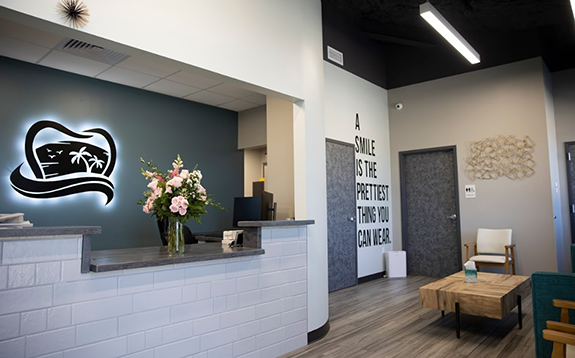
Dr. Sarah Pitarra is happy to offer oral appliance therapy to help address your sleep apnea. We’ll develop a custom treatment plan that best fits your lifestyle, financial situation, and insurance coverage. Our team is committed to guiding you through every step of the process with clarity and care. Since dental insurance doesn’t typically cover sleep apnea treatment, we provide low-interest financing to ensure you receive the life-changing treatment you need at an affordable cost.
Does Dental Insurance Cover the Cost of Sleep Apnea Treatment?
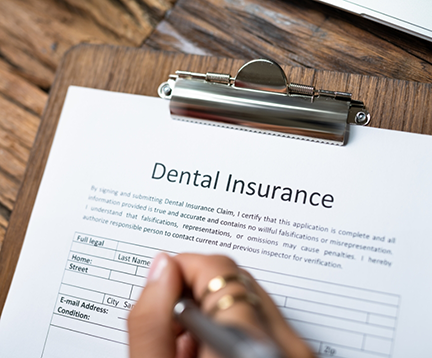
No, dental insurance does not typically cover sleep apnea treatment since it is classified as a medical condition. However, this means you may be able to use your medical insurance for treatments like oral appliance therapy. Our practice is happy to offer additional financing options to help make the payments more manageable.
Factors That Affect the Cost of Sleep Apnea Treatment

Are you considering sleep apnea treatment? You should know that several factors can affect the overall cost, such as:
- Sleep Study – A formal diagnosis is required before treatment can begin, which typically involves a sleep study that comes with its own expense.
- Insurance Coverage – The extent of your insurance benefits can significantly impact your out-of-pocket costs for sleep apnea care.
- Treatment Choice – The specific treatment option, like oral appliance therapy, can have varying costs depending on the provider. However, it often proves to be the more budget-friendly option in the long run.
Treat Your Sleep Apnea Now to Improve Your Health

If you're thinking about seeking treatment, consider the long-term financial and health benefits. Untreated sleep apnea can contribute to severe medical conditions, including high blood pressure, heart disease, and stroke. Additionally, it greatly increases the risk of car accidents, surpassing even the dangers of driving while intoxicated.
The expenses associated with managing these health issues, lost workdays due to fatigue, and potential vehicle repairs from accidents can add up to tens or even hundreds of thousands of dollars. Studies and real-life cases have shown that treating sleep apnea can help prevent these costly and dangerous consequences.
Making Sleep Apnea Treatment More Affordable

We strive to make sleep apnea treatment accessible to all patients. Our practice offers flexible financing solutions to help reduce your costs. We’ll work closely with you to maximize your insurance benefits and explore additional options if needed. Simply reach out to us, and we’ll be happy to help you take the next step toward better sleep and improved health!
Sleep Apnea FAQs
Does snoring automatically mean someone has sleep apnea?
While chronic snoring is one of the most common symptoms of sleep apnea, it does not always mean a person has it. However, snoring still indicates that someone isn’t breathing properly while they sleep, meaning their rest is compromised (in addition to affecting those around them).
Studies show that people who snore are also much more likely to develop sleep apnea in the future compared to those who don’t. That’s why a snoreguard can be so helpful in both the short and long term. It can help an entire household sleep better as well as potentially delay (or even prevent) a serious sleep disorder from starting.
Are snoreguards better than CPAP machines for sleep apnea?
It really depends on the patient! Many people prefer snoreguards and oral appliances to CPAP machines because they are easier to use and more comfortable. But for those with severe sleep apnea, they may not be enough. That’s why after we fit a patient with an appliance, they undergo another sleep study so we can make sure it’s working as intended.
It all comes down to what helps the patient get high quality sleep consistently. Some even benefit from combined therapy, where a mouthpiece is worn at the same time as a CPAP machine (meaning it can be placed on a gentler setting).
How can a dentist treat sleep apnea?
Many people are surprised to learn that a dentist like Dr. Pitarra can treat sleep apnea. While it might sound curious on the surface, the truth is that the physical symptoms of sleep apnea all occur in the mouth and upper airway, or the parts of the body that dentists understand the most. This allows them to make adjustments using oral appliances to open up the airway and prevent blockages throughout the night.
Is sleep apnea fatal?
Sleep apnea by itself is not fatal. But, it increases the risk of potentially fatal conditions. It has been shown to make someone much more likely to experience a cardiac event because the pauses in breathing spike blood pressure for several hours, which can lead to heart attack or stroke.
Dozing off while driving is fairly common—research has shown that driving while sleep-deprived is actually more dangerous than being drunk! Sleep apnea has even been directly connected to a few high-profile train derailments over the years. That’s why our team (and any other healthcare provider) strongly recommends that someone get treatment as soon as possible if they even suspect they have the disorder.
